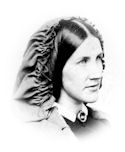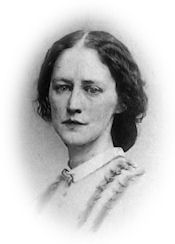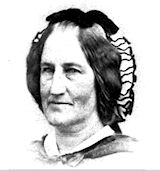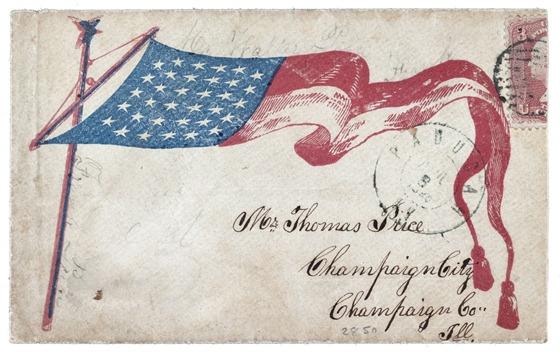 May 4th, Sunday morning. I was just about taking my bath when an aide rode up and ordered us to fall in immediately in full marching order, tents and all, as Yorktown had been evacuated. I ran out, ordered the regiment to fall in, and announced the welcome news. The enemy evacuated the town last night, under cover of the heavy cannonading which kept us awake. They had no doubt learned that our batteries were about to open the bombardment and concluded to take time by the forelock and clear out. By nine o’clock we were in motion, marching over our works and up to the glacis in front of Yorktown. Here we stacked arms and awaited orders, close to the deep ditch of a great work. From this position we could see the country for miles and got a good idea of the place. It is naturally a strong position, and if it could not be turned, which I think rather an easy matter, would be very difficult to take. While we were waiting it began to rain again, and in almost no time the roads, fields, and slopes were knee deep in mud. Towards noon, we heard the distant firing of musketry between Stoneman’s advance and the rebel rear guard. Smith’s division of infantry is with Stoneman, in close pursuit, and it is hoped may capture some of the retreating force. About one o’clock we were ordered to fall in, and advance as rapidly as possible to the support of Smith and Stoneman. Our brigade stepped out in splendid style, notwithstanding the wretched weather and slippery roads. We passed through the town, out on the Williamsburg road, marching without interruption till long after dark, losing many of our men by the wayside. The colonel rode in front and I in rear, to keep the regiment closed up, but when it became dark it was impossible to see anything. Still we plodded along by this time up to our knees in mud. About midnight every man had disappeared around me, and to my surprise there was no longer a regiment in front. Much astonished I rode ahead, thinking I had fallen behind, and presently came up with Captain Gott and about twenty-five men, halted by the road side. He reported the regiment lost, but knowing I was in the rear, had concluded to wait until I came along. Telling him to follow, I rode ahead, and soon fell in with another party, which proved to be the colonel and a few men of the leading companies, waiting for the rest of the regiment to come up. The colonel was greatly astonished when he found the men had disappeared and concluded to turn into the field to the right and bivouac for the night, posting a guard to collect the stragglers as they came along. It is impossible to give an idea of the terrible state of the roads. Smith’s wagons were passing over it, many of which were broken down or stuck fast in holes, blocking the way, and causing infinite trouble. The roads being clay, were so sticky that a man could hardly draw his feet out when once they were in. The result was complete exhaustion, causing the men to drop out one by one along the roadside, utterly disheartened, and so we lost the greater part of our men. Those of the regiment who were with us, and those who subsequently came up, struggled manfully to get up their shelter tents, which was no easy matter. Several succeeded, however, as they always do, and before long had crawled in and were soon asleep. I sat on my horse a long time watching the men at work, wondering what I had better do. The headquarters baggage was not up, and consequently we had no shelter of any kind. The ground was knee deep in mud, and I hesitated to dismount, although so sleepy I could hardly keep awake. To add to the difficulty, Seth was lost, and there was no one to take my horse or make a shelter. I finally concluded to dismount anyway and hitched my horse to a tree, along the roadside; while I was making him fast Seth came up, and to my great delight took charge. In the meantime I stood in the mud, not knowing what to do when McKay called out “There’s the adjutant stuck in the mud.” He called me to him and pointing out his little shelter tent, invited me to share it with him. He had made a comfortable bed of rails under which the water ran away, and we were both as snug and secure from the rain as though we had been in a regular tent; what a godsend it was, and how grateful I felt to the captain. After a heavy nightcap from my canteen, we were soon asleep.
May 4th, Sunday morning. I was just about taking my bath when an aide rode up and ordered us to fall in immediately in full marching order, tents and all, as Yorktown had been evacuated. I ran out, ordered the regiment to fall in, and announced the welcome news. The enemy evacuated the town last night, under cover of the heavy cannonading which kept us awake. They had no doubt learned that our batteries were about to open the bombardment and concluded to take time by the forelock and clear out. By nine o’clock we were in motion, marching over our works and up to the glacis in front of Yorktown. Here we stacked arms and awaited orders, close to the deep ditch of a great work. From this position we could see the country for miles and got a good idea of the place. It is naturally a strong position, and if it could not be turned, which I think rather an easy matter, would be very difficult to take. While we were waiting it began to rain again, and in almost no time the roads, fields, and slopes were knee deep in mud. Towards noon, we heard the distant firing of musketry between Stoneman’s advance and the rebel rear guard. Smith’s division of infantry is with Stoneman, in close pursuit, and it is hoped may capture some of the retreating force. About one o’clock we were ordered to fall in, and advance as rapidly as possible to the support of Smith and Stoneman. Our brigade stepped out in splendid style, notwithstanding the wretched weather and slippery roads. We passed through the town, out on the Williamsburg road, marching without interruption till long after dark, losing many of our men by the wayside. The colonel rode in front and I in rear, to keep the regiment closed up, but when it became dark it was impossible to see anything. Still we plodded along by this time up to our knees in mud. About midnight every man had disappeared around me, and to my surprise there was no longer a regiment in front. Much astonished I rode ahead, thinking I had fallen behind, and presently came up with Captain Gott and about twenty-five men, halted by the road side. He reported the regiment lost, but knowing I was in the rear, had concluded to wait until I came along. Telling him to follow, I rode ahead, and soon fell in with another party, which proved to be the colonel and a few men of the leading companies, waiting for the rest of the regiment to come up. The colonel was greatly astonished when he found the men had disappeared and concluded to turn into the field to the right and bivouac for the night, posting a guard to collect the stragglers as they came along. It is impossible to give an idea of the terrible state of the roads. Smith’s wagons were passing over it, many of which were broken down or stuck fast in holes, blocking the way, and causing infinite trouble. The roads being clay, were so sticky that a man could hardly draw his feet out when once they were in. The result was complete exhaustion, causing the men to drop out one by one along the roadside, utterly disheartened, and so we lost the greater part of our men. Those of the regiment who were with us, and those who subsequently came up, struggled manfully to get up their shelter tents, which was no easy matter. Several succeeded, however, as they always do, and before long had crawled in and were soon asleep. I sat on my horse a long time watching the men at work, wondering what I had better do. The headquarters baggage was not up, and consequently we had no shelter of any kind. The ground was knee deep in mud, and I hesitated to dismount, although so sleepy I could hardly keep awake. To add to the difficulty, Seth was lost, and there was no one to take my horse or make a shelter. I finally concluded to dismount anyway and hitched my horse to a tree, along the roadside; while I was making him fast Seth came up, and to my great delight took charge. In the meantime I stood in the mud, not knowing what to do when McKay called out “There’s the adjutant stuck in the mud.” He called me to him and pointing out his little shelter tent, invited me to share it with him. He had made a comfortable bed of rails under which the water ran away, and we were both as snug and secure from the rain as though we had been in a regular tent; what a godsend it was, and how grateful I felt to the captain. After a heavy nightcap from my canteen, we were soon asleep.
 Georgeanna’s Journal.
Georgeanna’s Journal.
 May 4th, Sunday morning. I was just about taking my bath when an aide rode up and ordered us to fall in immediately in full marching order, tents and all, as Yorktown had been evacuated. I ran out, ordered the regiment to fall in, and announced the welcome news. The enemy evacuated the town last night, under cover of the heavy cannonading which kept us awake. They had no doubt learned that our batteries were about to open the bombardment and concluded to take time by the forelock and clear out. By nine o’clock we were in motion, marching over our works and up to the glacis in front of Yorktown. Here we stacked arms and awaited orders, close to the deep ditch of a great work. From this position we could see the country for miles and got a good idea of the place. It is naturally a strong position, and if it could not be turned, which I think rather an easy matter, would be very difficult to take. While we were waiting it began to rain again, and in almost no time the roads, fields, and slopes were knee deep in mud. Towards noon, we heard the distant firing of musketry between Stoneman’s advance and the rebel rear guard. Smith’s division of infantry is with Stoneman, in close pursuit, and it is hoped may capture some of the retreating force. About one o’clock we were ordered to fall in, and advance as rapidly as possible to the support of Smith and Stoneman. Our brigade stepped out in splendid style, notwithstanding the wretched weather and slippery roads. We passed through the town, out on the Williamsburg road, marching without interruption till long after dark, losing many of our men by the wayside. The colonel rode in front and I in rear, to keep the regiment closed up, but when it became dark it was impossible to see anything. Still we plodded along by this time up to our knees in mud. About midnight every man had disappeared around me, and to my surprise there was no longer a regiment in front. Much astonished I rode ahead, thinking I had fallen behind, and presently came up with Captain Gott and about twenty-five men, halted by the road side. He reported the regiment lost, but knowing I was in the rear, had concluded to wait until I came along. Telling him to follow, I rode ahead, and soon fell in with another party, which proved to be the colonel and a few men of the leading companies, waiting for the rest of the regiment to come up. The colonel was greatly astonished when he found the men had disappeared and concluded to turn into the field to the right and bivouac for the night, posting a guard to collect the stragglers as they came along. It is impossible to give an idea of the terrible state of the roads. Smith’s wagons were passing over it, many of which were broken down or stuck fast in holes, blocking the way, and causing infinite trouble. The roads being clay, were so sticky that a man could hardly draw his feet out when once they were in. The result was complete exhaustion, causing the men to drop out one by one along the roadside, utterly disheartened, and so we lost the greater part of our men. Those of the regiment who were with us, and those who subsequently came up, struggled manfully to get up their shelter tents, which was no easy matter. Several succeeded, however, as they always do, and before long had crawled in and were soon asleep. I sat on my horse a long time watching the men at work, wondering what I had better do. The headquarters baggage was not up, and consequently we had no shelter of any kind. The ground was knee deep in mud, and I hesitated to dismount, although so sleepy I could hardly keep awake. To add to the difficulty, Seth was lost, and there was no one to take my horse or make a shelter. I finally concluded to dismount anyway and hitched my horse to a tree, along the roadside; while I was making him fast Seth came up, and to my great delight took charge. In the meantime I stood in the mud, not knowing what to do when McKay called out “There’s the adjutant stuck in the mud.” He called me to him and pointing out his little shelter tent, invited me to share it with him. He had made a comfortable bed of rails under which the water ran away, and we were both as snug and secure from the rain as though we had been in a regular tent; what a godsend it was, and how grateful I felt to the captain. After a heavy nightcap from my canteen, we were soon asleep.
May 4th, Sunday morning. I was just about taking my bath when an aide rode up and ordered us to fall in immediately in full marching order, tents and all, as Yorktown had been evacuated. I ran out, ordered the regiment to fall in, and announced the welcome news. The enemy evacuated the town last night, under cover of the heavy cannonading which kept us awake. They had no doubt learned that our batteries were about to open the bombardment and concluded to take time by the forelock and clear out. By nine o’clock we were in motion, marching over our works and up to the glacis in front of Yorktown. Here we stacked arms and awaited orders, close to the deep ditch of a great work. From this position we could see the country for miles and got a good idea of the place. It is naturally a strong position, and if it could not be turned, which I think rather an easy matter, would be very difficult to take. While we were waiting it began to rain again, and in almost no time the roads, fields, and slopes were knee deep in mud. Towards noon, we heard the distant firing of musketry between Stoneman’s advance and the rebel rear guard. Smith’s division of infantry is with Stoneman, in close pursuit, and it is hoped may capture some of the retreating force. About one o’clock we were ordered to fall in, and advance as rapidly as possible to the support of Smith and Stoneman. Our brigade stepped out in splendid style, notwithstanding the wretched weather and slippery roads. We passed through the town, out on the Williamsburg road, marching without interruption till long after dark, losing many of our men by the wayside. The colonel rode in front and I in rear, to keep the regiment closed up, but when it became dark it was impossible to see anything. Still we plodded along by this time up to our knees in mud. About midnight every man had disappeared around me, and to my surprise there was no longer a regiment in front. Much astonished I rode ahead, thinking I had fallen behind, and presently came up with Captain Gott and about twenty-five men, halted by the road side. He reported the regiment lost, but knowing I was in the rear, had concluded to wait until I came along. Telling him to follow, I rode ahead, and soon fell in with another party, which proved to be the colonel and a few men of the leading companies, waiting for the rest of the regiment to come up. The colonel was greatly astonished when he found the men had disappeared and concluded to turn into the field to the right and bivouac for the night, posting a guard to collect the stragglers as they came along. It is impossible to give an idea of the terrible state of the roads. Smith’s wagons were passing over it, many of which were broken down or stuck fast in holes, blocking the way, and causing infinite trouble. The roads being clay, were so sticky that a man could hardly draw his feet out when once they were in. The result was complete exhaustion, causing the men to drop out one by one along the roadside, utterly disheartened, and so we lost the greater part of our men. Those of the regiment who were with us, and those who subsequently came up, struggled manfully to get up their shelter tents, which was no easy matter. Several succeeded, however, as they always do, and before long had crawled in and were soon asleep. I sat on my horse a long time watching the men at work, wondering what I had better do. The headquarters baggage was not up, and consequently we had no shelter of any kind. The ground was knee deep in mud, and I hesitated to dismount, although so sleepy I could hardly keep awake. To add to the difficulty, Seth was lost, and there was no one to take my horse or make a shelter. I finally concluded to dismount anyway and hitched my horse to a tree, along the roadside; while I was making him fast Seth came up, and to my great delight took charge. In the meantime I stood in the mud, not knowing what to do when McKay called out “There’s the adjutant stuck in the mud.” He called me to him and pointing out his little shelter tent, invited me to share it with him. He had made a comfortable bed of rails under which the water ran away, and we were both as snug and secure from the rain as though we had been in a regular tent; what a godsend it was, and how grateful I felt to the captain. After a heavy nightcap from my canteen, we were soon asleep.





